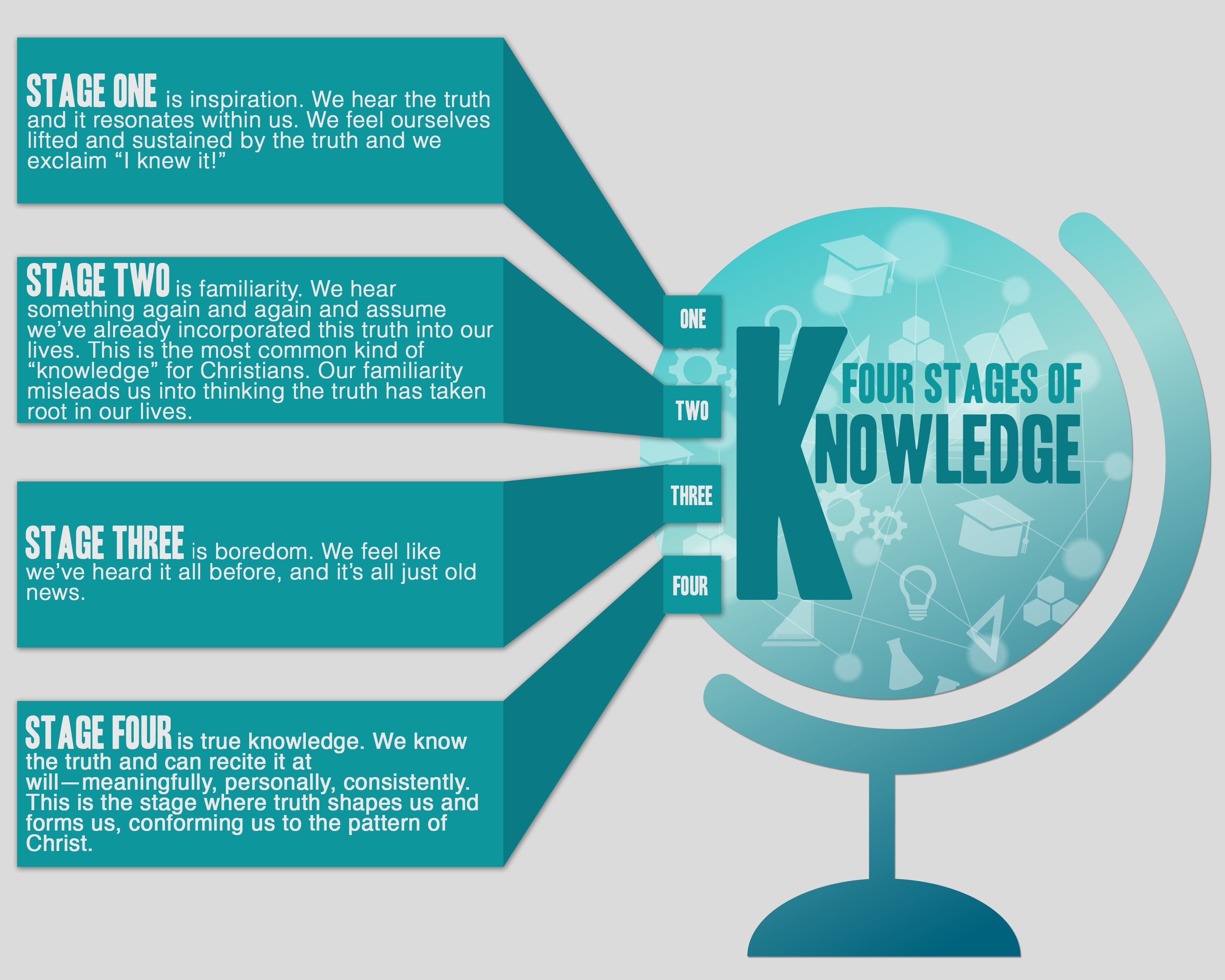Despite nine years of theological education, seven years at private Christian school, seventeen years as an ordained minister, and 37 years of unbroken church attendance, I cannot name the Ten Commandments off the top of my head.
Don’t get me wrong. I can name most of them. I can even name them all if given at least three attempts. I know where to find them. And I’m certain my life is shaped by the scriptures and by God’s laws more than my ability to remember the commandments specifically.
But it still bothers me.
A lot.
There’s a big difference between familiarity and knowledge, but most of us deceive ourselves into thinking they’re the same thing. We listen to sermons and feel our attention drifting because we know this already. We know about the Trinity and the resurrection and all that stuff about the Spirit.
Blah. Blah. Blah.
But then something happens, and our ignorance is revealed. A child asks us to explain the Trinity, and we can’t. A friend asks if we think the resurrection really happened, and we’re not sure. We feel lost and alone, and then we question why God doesn’t speak to us more simply.
But we don’t know.
Larry Osborne, a pastor in southern California, describes this phenomenon in his book Sticky Church. He outlines four stages of “knowing.”
Stage One is inspiration. We hear the truth and it resonates within us. We feel ourselves lifted and sustained by the truth and we exclaim “I knew it!”
Stage Two is familiarity. We hear something again and again and take it for granted that we’ve already incorporated this truth into our lives. This is the most common kind of “knowledge” for Christians. We’re familiar with the idea that our sins are forgiven, even if we still feel guilty for them. We’re familiar with the concept that we’re new creations in Christ, even though we feel pretty much like the same people we’ve always been. Our familiarity misleads us into thinking the truth has taken root in our lives.
Stage Three is boredom. We feel like we’ve heard it all before, and it’s all just old news.
Stage Four is true knowledge. We know the truth and can recite it at will—meaningfully, personally, consistently. This is the stage where truth shapes us and forms us, conforming us to the pattern of Christ.
In my experience, most Christians live bored lives. We know Jesus wants us to turn the other cheek. That is, until someone screws us over. Then we think we’re the exception, or that Jesus tends to exaggerate. We know we’re supposed to love our enemies, but we like to pretend it means fans of opposing hockey teams rather than the people we actually hate.
But if the truth escapes us when we need it, or fails to transform our behavior, or only deepens our prejudices, can we really say we know it?
And as for the Ten Commandments, well, I guess it’s more accurate to say I sort-of know them. I’d say I know them in and out, despite my momentary lapse in memory, but that would probably be considered
fossores
Related posts
Categories
Category Cloud
Tag Cloud
Recent Posts
- Victors and Victims November 6, 2018
- 3 Hacks for Happiness October 29, 2018
- Hope Against Death September 20, 2018
- The Shape Of The Cross September 19, 2018


